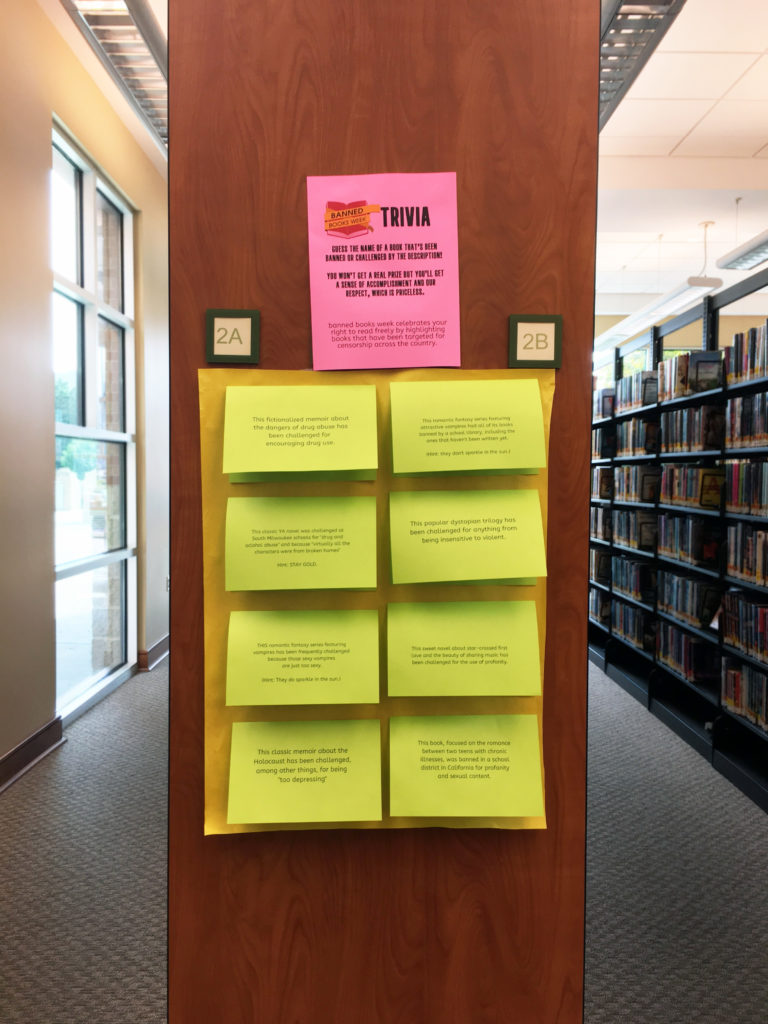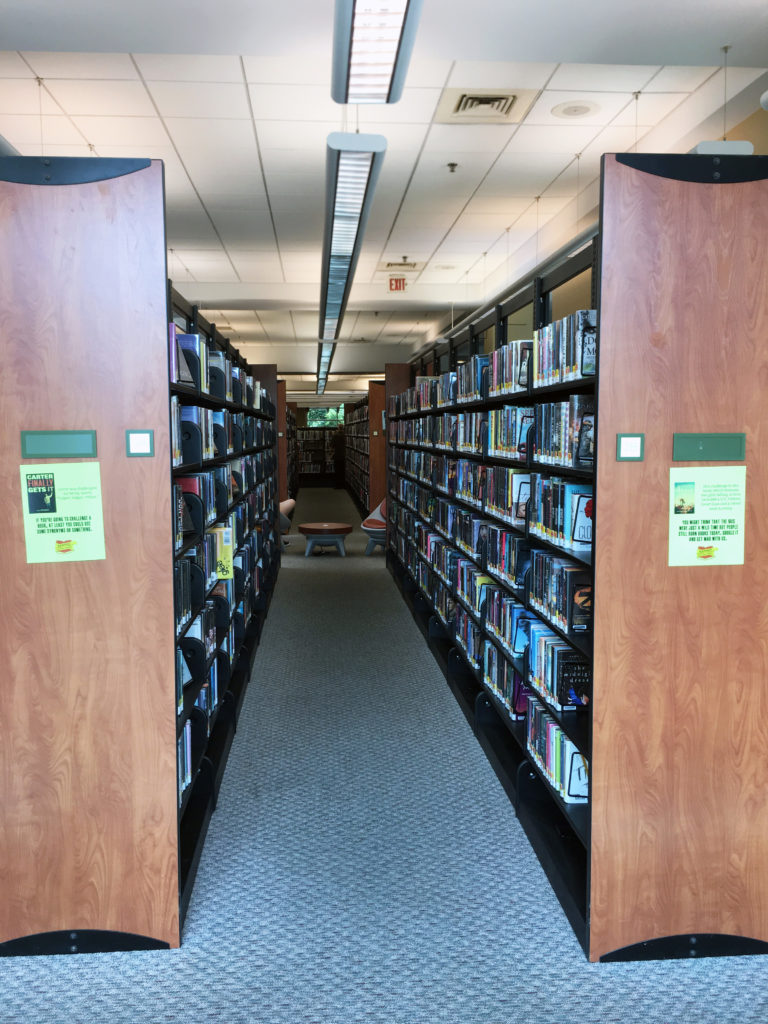Blount County Public Library brings Banned Books Week into the spotlight
In the week of Sept. 23-27, Blount County Public Library reintroduces the annual celebration of Banned Books Week. This week is dedicated to educating the public on banned book as well as encouraging people to take advantage of these books to expand their minds.

Banned books are a bit of a misconception. “Banned books” usually aren’t really banned at all. According to The American Library Association, a challenge of a book is “an attempt to remove or restrict materials, based upon the objections of a person or group.” Once a book is successfully challenged, it is then banned.
Most of the time, books are challenged for their content, usually in school situations. Most people also consider banning books to be a thing of the past, yet the Harry Potter series was challenged as recently as a couple of weeks ago in a Catholic school in Tennessee for its use of curses and spells.

Chelsea Tarwater, a Blount County Public Library employee, helped create the displays and posters for Banned Books Week.
“Last year, people thought we were banning books. It still happens though people seem to believe it’s an out of date concept,” Tarwater said.
The American Library Services encourages Banned Books Week to celebrate the freedom individuals have to read, push people to read books that are challenged, expand their knowledge and challenge themselves to explore content that could lead to a more well-rounded individual.
This year’s moto is “Censorship leaves us in the dark. Keep the light on,” as seen on flyers and boards posted throughout the library. Everyone benefits from recognizing the act of challenging and banning books.
“Especially kids,” Tarwater said. Children don’t have as much choice concerning what they read. Everyone should have the choice to read. A public library should have something available for everyone, no matter what they do or don’t believe in.
To celebrate Banned Books Week, the library is showing off their collection of challenged books by displaying them around the library, as well as putting up posters on the shelves and notes on the books themselves describing why they were banned.

Such displays included classic books to new Young Adult novels like J.D. Salinger’s “The Catcher in the Rye” for having vulgar language and being a “filthy, filthy book;” Anne Frank’s “The Diary of a Young Girl” for being “a real downer;” and R.L. Stine’s “Double Date” because most of R.L Stine’s books include references to the occult, witchcraft, and allegedly satanism.
M.T. Anderson’s “Feed” was challenged to be banned for being “trash” and “covered with the F-word.” Most of these challenged books can be found in the YA section of the Blount County Public Library.
The book with the most challenges is Suzanne Collins’s “The Hunger Games” for being anti-ethnic, anti-family, insensitive, as well as including offensive language, occult/satanic themes, violence, religious viewpoint, and unsuited to age group.
“All of that for just one book! Imagine how dangerous the whole trilogy is,” said the comment at the end of this particular flyer.
This is only a few on a very long list of books the library is displaying, not to mention all the challenged or banned books not available in the public library. Most of these books are required readings in schools all across the country, leading parents to try and shield their children from these complaints.

Books are especially challenged for children, and, if decided to be banned, would take away a child’s choice to read what they want. Such books include content for all ages like Neil Gaiman’s “Coraline,” Dr. Suess’s “Hop on Pop,” and Dav Pilkey’s “Captain Underpants and the Attack of the Talking Toilets.”
One display for LGBT teens also recently took fire as a local claimed to be “offended” and encouraged others to demand the library to take it down. Of course, being a public library includes encompassing all types of people to freely explore content no matter their age, gender identity, belief, or life.
Banned Books Week is about expressing the freedom to read whatever book you want and challenging the people who try to shut these non-conforming ideas down. In order to expand what you know, you must first challenge how you think, and these “banned books” will do just that. In fact, that’s why they are being challenged in the first place.

